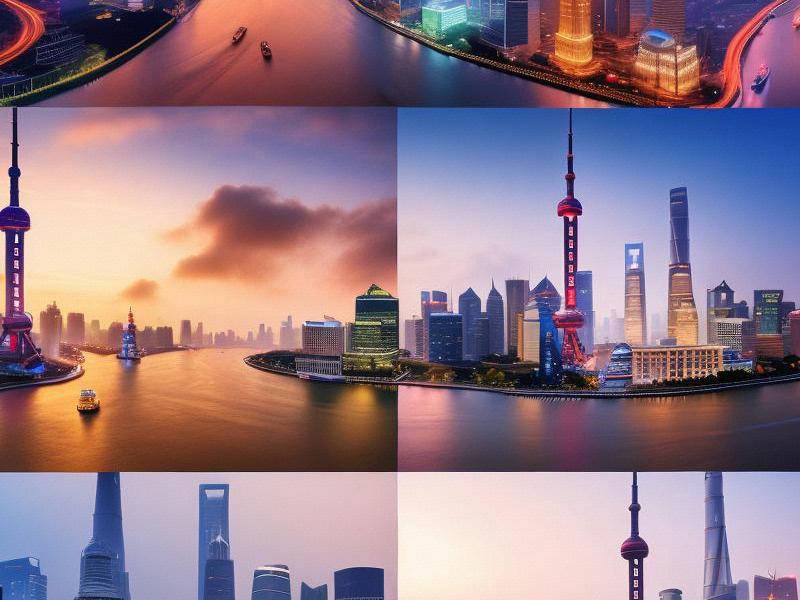This article delves into the multifaceted identity of Shanghai, exploring its transformation from a historic port city to a global metropolis. It examines the city's economic prowess, urban development, cultural vibrancy, and its role in international affairs.

Shanghai, a name that resonates with the rhythm of modernity and the echoes of history, stands as a beacon of China's rapid transformation. This vibrant metropolis, with its skyline punctuated by the iconic Oriental Pearl Tower and the futuristic Shanghai Tower, is not just a city; it is a living testament to China's economic miracle.
Nestled along the banks of the Huangpu River, Shanghai has long been a gateway to the world. Its strategic location at the mouth of the Yangtze River has made it a crucial hub for trade and commerce for centuries. In the 19th century, Shanghai was one of the first cities in China to open up to foreign trade, and its international concessions laid the foundation for its cosmopolitan character.
Today, Shanghai is the economic engine of China, driving the nation's growth and innovation. The city is home to the world's busiest container port, handling billions of tons of cargo annually. Its financial district, known as Lujiazui, is a global financial center, housing some of the world's largest banks and investment firms. The Shanghai Stock Exchange is a key player in the global financial market, reflecting the city's status as a hub for capital and investment.
The city's rapid urban development is nothing short of remarkable. In just a few decades, Shanghai has transformed from a war-torn city into a modern metropolis. The Bund, once a symbol of colonialism, has been revitalized into a scenic promenade, offering breathtaking views of the Pudong skyline. Pudong, in particular, is a showcase of Shanghai's ambition and vision. Once a rural area, it is now a bustling district with world-class skyscrapers, luxury shopping malls, and state-of-the-art transportation systems.
The Maglev train, which connects Pudong International Airport to the city center in just seven minutes, is a testament to Shanghai's commitment to innovation and efficiency. The city's metro system, one of the most extensive in the world, provides seamless connectivity, making it easy for residents and visitors to navigate the urban sprawl.
爱上海同城419
Shanghai's cultural scene is as diverse and dynamic as its economy. The city is a melting pot of cultures, with influences from China's various regions as well as from the many international communities that call it home. The French Concession, with its charming cobblestone streets and colonial architecture, offers a glimpse into the city's colonial past. The Yu Garden, a classical Chinese garden, provides a serene escape from the hustle and bustle of modern life.
Cultural festivals and events are a staple of Shanghai's calendar. The Shanghai International Film Festival, one of the oldest and most prestigious film festivals in Asia, attracts filmmakers and cinephiles from around the world. The Shanghai Fashion Week, a showcase of global fashion trends, highlights the city's role as a fashion capital.
Education and research are also thriving in Shanghai. The city is home to some of China's top universities, including Fudan University and Tongji University, which attract students from across the country and the world. Shanghai's research institutions are at the forefront of scientific and technological advancements, contributing to the city's innovative spirit.
Shanghai's role in international affairs is growing. It is a member of the World Expo, having hosted the prestigious event in 2010, which drew millions of visitors from around the globe. The Expo showcased Shanghai's ability to organize large-scale international events and its commitment to sustainable development.
上海娱乐
The city is also a key player in global climate change initiatives. Shanghai has implemented various measures to reduce carbon emissions and promote green energy. The construction of the Zhangjiang Comprehensive National Science Center is a step towards fostering innovation in clean energy and environmental technologies.
Despite its rapid development, Shanghai remains committed to preserving its rich cultural heritage. The city has taken steps to protect its historical sites and promote traditional arts and crafts. The Shanghai Museum, with its extensive collection of Chinese art, is a treasure trove for art enthusiasts.
Shanghai's people are as dynamic as the city itself. The residents of Shanghai, known as Shanghainese, are known for their entrepreneurial spirit and adaptability. The city's diverse population, with people from all walks of life, contributes to its vibrant social fabric.
The future of Shanghai is bright, with ambitious plans for further development and innovation. The city is investing in smart technologies to enhance urban living, with initiatives such as the construction of smart neighborhoods and the implementation of digital governance systems.
上海品茶论坛
Shanghai is also looking to expand its global influence through cultural diplomacy. The city is promoting Chinese culture and values through international cultural exchanges and cooperation. The establishment of the Shanghai Culture and Arts Exchange Center is a step towards fostering mutual understanding and friendship with other nations.
In conclusion, Shanghai is a city that embodies the spirit of China's transformation. It is a global metropolis that bridges the past and the future, the East and the West. Its economic prowess, urban development, cultural vibrancy, and role in international affairs make it a city of global significance.
As Shanghai continues to grow and evolve, it remains a symbol of China's rise as a global power. The city's story is one of resilience, innovation, and ambition, a story that continues to inspire and captivate the world.